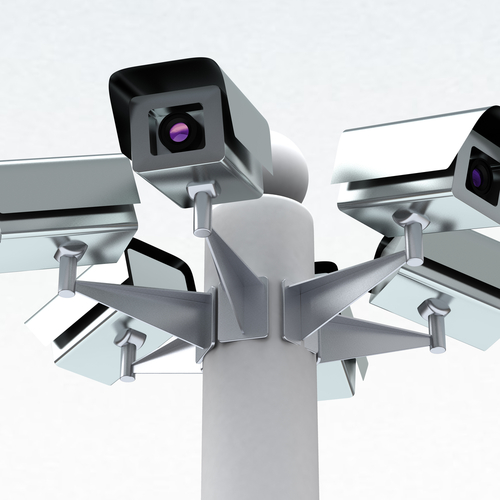August 27th, 2013

Adding security software to your smartphone or tablet is a necessity. Just as you need protection from malware on your home computer, you mobile device needs protection too. In fact, since you’ll be traveling around and possibly using unsecured networks, security on your mobile device may be even more important.
One major concern for many users, however, is how much battery will be drained by effective mobile security apps. As Paul Lilly writes for Maximum PC, AV-Comparitives, an independent testing lab, put 16 of the top security apps to the test to find out which one you should consider for your mobile device.
Surprisingly, for the leading apps battery usage isn’t much of a concern. Even the security apps that drain your battery the most won’t take more than about 3-percent.
Most of the apps were also incredibly effective detecting malware. In fact, all but one detected at least 98-percent of almost 3-thousand malicious applications collected for the test.
The lesson here is that there are a number of effective mobile security apps available to keep your device safe without hurting performance. There are even free options that perform as well as some of their paid counterparts.
Without these apps, your mobile device could be infected by malware, which results in a loss in performance and the monitoring or harvesting of your data. Some malware is even capable of taking over functions of your device, like sending texts or taking pictures.
For help keeping your devices secure or to clean or fix a device, call Geek Rescue at 918-369-4335. Like we always say, if it boots up or turns on, we fix it.
August 26th, 2013

Data security for all types of businesses is a hot topic. Strangely, there are still many that subscribe to the theory that data theft won’t happen to them because they either have nothing of value or because they are too small to be targeted.
Thor Olavsrud reports for CIO that about two-thirds of industrial executives at midmarket firms said they were “at little or no risk”. Even though that’s down from about 77-percent a year ago, the large number of decision makers who don’t make security a priority is exactly why their firms become a target.
While larger companies tend to embrace the security risks they face, small to medium sized companies often feel they can get away with less security because larger companies will be targeted instead. If you’re a hacker, however, would you go after the company with robust security, or the company with next to none?
The belief that a company’s data is not valuable is also a false assumption. Even without a desire for access to the data you use to run your business, a cyber criminal will want personnel files, which contain social security numbers, personal identifiable information and financial information. This is data kept by any company, no matter how big.
Without the proper security measures in place, a business will have a difficult time knowing what’s been compromised, or even if they’ve been hacked at all. That makes recovery more difficult. It also makes it next to impossible to take necessary precautions to prevent stolen data from costing you more.
Data security is extremely important for any business. Those that feel they don’t need security are actually advertising themselves as ideal targets. To build an effective security infrastructure for your business, contact Geek Rescue at 918-369-4335.
August 26th, 2013

When your phone is stolen, there are a number of things to worry about beyond just getting a new phone. All of our smartphones carry personal information that is used to access our online accounts when it falls into the wrong hands. Before getting a new phone, our first concern should be to lock down access to our old phone.
As Jaeyeon Woo reports for the Wall Street Journal, Samsung and LG are taking measures to not only prevent smartphone theft, but also to keep your data safe after theft. Their new anti-theft tool, or “kill switch”, would completely disable a phone that’s been reported stolen. This means the device becomes inoperable, even with a new SIM card or hacking procedures.
A growing business overseas is to ship and sell stolen smartphones to the U.S. This “kill switch” feature would take a tremendous bite out of that industry. However, users will have to register their devices before they are stolen in order to use the kill switch function.
Samsung and LG’s efforts build on the recently publisized developments for Android phones to help find and lock lost and stolen phones. Those using iOS devices also have similar functions to protect their lost and stolen devices.
The kill switch, however, is seemingly the first tool that bricks a device in any circumstance. Since the phone is rendered useless, the hope is that thefts will drop dramatically. In any event, users won’t have to worry that the theft of their smartphone will also lead to the theft of their identity.
To keep your smartphone or other device more secure, contact Geek Rescue at 918-369-4335. We offer a variety of security options and also fix broken devices and devices with infected with malware.
August 23rd, 2013

When spam email arrives in your inbox, it’s easy to ignore it, delete it and forget about it, right? Well, maybe not so easy for many of us.
As Chris Matyszczyk, of CNet, reports, a recent study found that about 30-percent of people knowingly, willingly opened an email that they knew, or at least strongly suspected, was spam. Why? Sometimes, the promise of something too good to be true is too good to pass up.
To make matters worse, about 9-percent of people willingly downloaded attachments included in the spam email. So, they thought it was spam, opened it anyway and downloaded the attachment. Sometimes, we make it too easy for the hackers.
Those hackers, however, don’t make it easy for users. It’s because of the social engineering they employ that it’s so enticing to open messages we know we shouldn’t. The most popular tactics are the promise of money, sex or a new friend.
This behavior is why having antivirus software installed on your computer isn’t enough to keep you fully secure. It is this human error that often causes viruses and malware to infect your PC and steal your data.
These tempting spam attacks extend beyond your email inbox, as well. You’ll see similar tactics used on social media and in text messages. You’ve likely already received a text from an unknown number informing you that you’ve won some money or are entitled to a free gift card. When those arrive on our smartphones, it’s easy to identify them as spam, but sometimes it’s much more difficult to delete them and move on.
If you’d like to improve the security on your email, or need to clean and fix a device that’s infected with malware, contact Geek Rescue at 918-369-4335. We understand spam is tricky, but we will fix whatever harm has been done.
August 23rd, 2013

There are three main choices for an internet browser. Internet explorer from Microsoft was the top choice for quite some time, but competitors Mozilla Firefox and Google Chrome have taken a bite out of the market share. Chrome is now the most used browser, but many people aren’t taking advantage of extensions to use it at full capacity.
Extensions are tools you add on to your existing Chrome browser. They enhance your productivity by making tasks you already do easier. There are ad-blockers, screenshot tools, password auto-fills and social media help. Best of all, many of the top extensions are free to install.
Paul Mah, of CIO, has a list of some of the best Chrome apps currently available, but not all of his choices are free.
We’ve all had moments when a screenshot of our browser would be helpful for one reason or another. With this extension, you get to choose what area of the screen you want a shot of, and include annotations for reference.
This extension allows you to post updates to all of your social media profiles without having to navigate to each page. When you find something you want to share, just use Buffer to schedule your posts across all of your profiles. It even tracks metrics so you can see how you’re doing.
Your operating system may not have the capability to snap browser windows to each side of the screen so each is viewable. With the Dualless extension, you’ll always be able to arrange Chrome’s windows the way you need them.
Sites that still use Flash slow down your performance, but with this extension, Flash on any site is automatically blocked to keep your browsing experience fast.
When you come across a word you are unfamiliar with, just double click and this extension provides a small pop-up definition. You will have to specifically allow Chrome to open pop-ups when you double click, however.
The name is a little odd, but this extension proves to be incredibly useful. If you accidentally close a tab, you’ll have the ability to search through a list of every closed tab you’ve been through to find it again. The list is organized by when the tab was closed, but is searchable by keywords to help.
The Chrome Web Store offers thousands of options for you to customize your browser and optimize your experience. It’s available by going to the Settings page and clicking Extensions.
Should you be having trouble with your internet, or the device you use to access it, call Geek Rescue at 918-369-4335. Our knowledgeable techs are available to fix whatever problem you may be experiencing.
August 23rd, 2013

Imagine your text alert on your smartphone goes off. You eagerly check your new message and find that it’s from an unknown number telling you that your email account has been hacked. The message informs you that you’ll need to text back a word or phrase that they give you, likely to verify your identity or something. What do you do next?
The Federal Trade Commission is warning the public not to text back. These text messages are part of a new scam and the target is your personal information.
When you reply to these texts, the scammers gain information about you and your smartphone. This gives them the tools they need to access your data and compromise your accounts.
Even though plenty of people around they world learn the unfortunate news that their email has been hacked, there probably aren’t many, if any at all, that are warned via text message from their email provider. If you are contacted about a compromised account, be it your email, bank account or credit card, the company will likely do it on a more secure channel.
These text messages may also include a link for you to follow for more information or continue the process of fixing your email. These links are tempting as you want to find out more information, but don’t click them. Just by following the link, you’ll likely be installing malware onto your device, which hackers use to monitor your activity and steal your data.
What you can do is alert your phone’s provider about the message. Most of the large providers have a spam number you can call, or forward these text messages to.
If you feel that malware, or any other type of malicious software, has been installed on your phone or your smartphone is just not performing like it should, contact Geek Rescue at 918-369-4335. We fix smartphones.
August 22nd, 2013

A new spear phishing attack has prompted a public service announcement from from the FBI’s Cyber Division. The attack uses an email made to look like it’s from the National Center for Missing and Exploited Children.
Spear phishing is a targeted attack that attempts to gain access to accounts or data. Their targeted nature usually suggests those responsible are trying to steal something specific from those receiving the email. Put another way, if you receive the email, you have something the hackers want.
This particular attack contains the subject “Search For Missing Children” and has a .zip file attached. This file contains three malicious files included, which are harmful to your computer and could steal or log your information.
Implementing better security is a great step in avoiding these types of attacks, but practicing better internet habits is key. Regardless of who it’s from, you should be wary of any unsolicited email with attachments that arrives in your inbox. Some of these attack emails also contain links that should also be avoided.
If you’ve seen this specific email spear phishing attack, or one similar, you’re urged to report it to the FBI.
To safeguard yourself or your company against these attacks and other malicious attempts to infiltrate your network, contact Geek Rescue at 918-369-4335. We have a variety of security solutions to help you and will educate you on how to stay secure.
August 22nd, 2013

You’ve no doubt heard the term “retina display” but do you really understand what that means and why it’s desirable?
Retina is an Apple trademark and used for displays on the iPhone and iPad. Apple uses it to convey to consumers that anything that’s not Retina isn’t good enough.
Whitson Gordon explored this for Lifehacker. Retina is really a term that just sounds better than saying your display is good enough.
When Apple tells you your display is Retina, they’re telling you that the resolution is high enough for your screen size that you won’t be able to see individual pixels. The pixel density, or PPI, which stands for pixels per inch, doesn’t need to be as high on a small iPhone screen as it would be for an iPad or television. So, all Retina displays are not created equal.
When you’re buying an Apple device that has Retina display, however, you can be sure that you’re getting the best display needed for that device. Anything higher would be hardly noticeable and be a drain on performance.
Regardless of whether you have an Apple device or not, you can test your display to find out if it’s up to the Retina, or good enough not to see pixels, standard. Use this handy calculator to find out what the PPI is and measure it against the size of your device.
If you encounter problems with your display or any other aspect of your smartphone, tablet, mp3 player or computer, contact Geek Rescue at 918-369-4335. If it boots up or turns on, we’ve got you covered.
August 22nd, 2013

Everyone is clamoring for an upgrade in security for their smartphone and Google has applied for a patent that seemingly will do just that.
Alex Colon, of GigaOM, writes that Google patented a “location-based security system for portable electronic devices.” So how will this help keep your smartphone safe?
You’re already letting Google know where you are all the time. Using Google Maps or just leaving location based searches on, your GPS and Google already have a close relationship.
This new technology builds off of that to change the settings on your phone based on where you currently are. For example, when you’re at home, the security settings will be set to low because there is little chance of anyone swiping your phone from your coffee table. However, when you venture outside and into public, your phone will automatically beef up security due to potentially more dangerous surroundings.
Without you having to physically change anything, your phone will demand a password to advance past the lockscreen. Other security measures may be put in place, as well.
We’ll have to wait and see exactly how Google plans to use this new patent. In the meantime, contact Geek Rescue at 918-369-4335 to discover all of your options for keeping your smartphone safe and secure. We protect devices from hacks, viruses and malware and also fix broken devices.
August 21st, 2013

The term antivirus gets used a lot, but what does it actually refer to? Do you know what you’re protected against when you install antivirus software?
Unfortunately, antivirus has become a general term for security software. Some protect you against different threats than others.
Alan Henry wrote about the specifics of antivirus and anti-malware protection in his article for Lifehacker.
The term virus specifically doesn’t cover other threats like worms, spyware or adware. Your anitvirus software, however, likely covers some of these other threats.
A virus falls under the category of malware, but that doesn’t mean anti-malware protection keeps you fully secure. Your anti-malware program may not prevent hacks and the loss of data.
It’s all confusing because of the vague language being employed. What you should know is what specifically your chosen security software protects you from. Do the research, ask questions and understand what the software does and, just as important, what it doesn’t do.
Regardless of the money spent and the research done, your security won’t be impregnable. You’ll still be susceptible to some threats. Installing two different security tools helps. One to scan your system continuously and keep out malicious threats. The other to scan from time to time to make sure nothing has gotten through that first line of defense.
Even with two measures in place, you might encounter a problem. That’s why your third security tool should be your own browsing habits. Don’t click on fishy looking links or spam email. Don’t download anything that doesn’t come from a verified, reliable source. Change passwords often and make them strong. These habits keep you away from potential problems and make your security software’s job easier.
Keeping your data secure and your PC clean is a difficult job. To ensure you are fully equipped to handle it, contact Geek Rescue at 918-369-4335. We have the security solutions you need and will advise you on safe surfing.




















